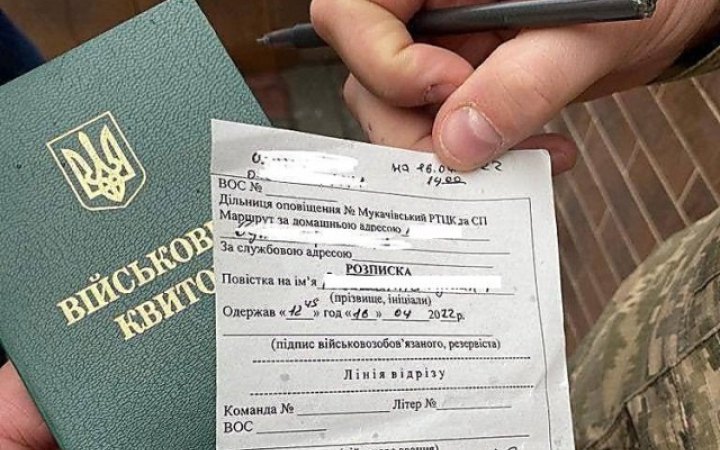The draft law on mobilisation proposes to abolish conscription and dismiss conscripts, putting them in the mobilisation pool at the age of 25. It also proposes to oblige all citizens, regardless of gender, aged 18 to 60, to register for military service.
This was reported on Facebook by MP, Deputy Chair of the Verkhovna Rada Committee on National Security, Defence and Intelligence Maryana Bezuhla. She stressed that registration does not mean mobilisation.
"Everyone is registered, including those who have a deferral and who can be mobilised only if they wish," she said.
Women are offered to be mobilised only if they wish.
It is also proposed to introduce a military registration document - a defender's certificate (which will indicate whether a person is liable for military service, has a deferment, or has a reservation).
The decision on military registration abroad will be made by the government.
For the period of martial law, the rights of evaders will be restricted. The involvement of the national police will also be increased.
The draft age is proposed to be reduced from 27 to 25 years.
Reasons for dismissal:
- those who have been in captivity (involuntarily)
- Generals by decision of the military leadership
- those who served during martial law for 36 months
- those who signed a short-term contract during mobilisation (persons aged 18-24, except for officers).
The right to deferment of military registration will be removed:
- civil servants
- law enforcement officers
- prosecutors,
- state executive servicemen
There are also changes to military training. It is planned to start basic general military training for up to three months for all citizens aged 18 to 25 at all educational institutions. Basic military service will be introduced at the age of 25 for those who have not completed basic military training.
The mobilisation process:
- Local state bodies and administrations are obliged to mobilise, rather than facilitate mobilisation as before.
- Mobilisation of vehicles - extension to all but individuals. Clarification.
They propose new responsibilities for citizens:
- Provide information about the place of residence (stay) to the employer.
- undergo a medical examination during mobilisation.
- to come to the ASC/TCR to clarify the data (they cannot mobilise in the ASC, only to clarify the data).
- Carry a military registration document (MRD) with you at all times during martial law (electronic analogue - a defender's certificate).
Civil service:
Admission to the civil service and law enforcement agencies only if you have undergone basic military training or basic military service.
Reservations:
- Cabinet of ministers - revision of reservations.
- New criteria for reservations in state bodies (from 25 to 50%)
Recruitment:
Recruitment at ASCs, employment centres and recruitment centres (voluntary only). Direct conscription to military units through recruitment.
Military service:
Mobilised during training - recruit (cannot be used except for training; capabilities, physical ability, actual fitness are determined; less financial support). The possibility of sending a citizen to the front unprepared is completely removed. If a recruit does not pass the training stage, he or she can be dismissed without additional costs to the state.
Basic military service - recruitment.
It is proposed to remove the category of "limitedly able". Only the able and the unable will remain. Some will become unable, some will become able. Re-passing the military qualification commission.
The possibility of military service under the call-up during mobilisation at the request of a person sentenced to serve a sentence of probation.
Social protection:
Leave of 30 days without division into parts once a year (given three times in 36 months of mobilisation). Leave of 90 days (without division into parts) after captivity for those who continue to serve. The list of family circumstances for discharge is defined by law (currently both the Law and the Cabinet of Ministers have differences).
Options for serving a summons:
- at the TCR by representatives of the TCR.
- at the place of residence by representatives of the TCR, police officers.
- at the place of work by representatives of the TCR, employer, police officers.
- in public places by representatives of the TCR and police officers.
The final provisions will define the responsibilities of the military command:
- to carry out mandatory rotation on the contact line - no more than 6 months with a specified period for the unit's recovery (under development);
- the procedure for discharging conscripts.
This draft law on mobilisation and demobilisation has been under discussion for some time. The General Staff, the Defence Ministry, and the Armed Forces have been working on this large document for months. The final version has not been agreed upon due to a number of fundamental issues.








